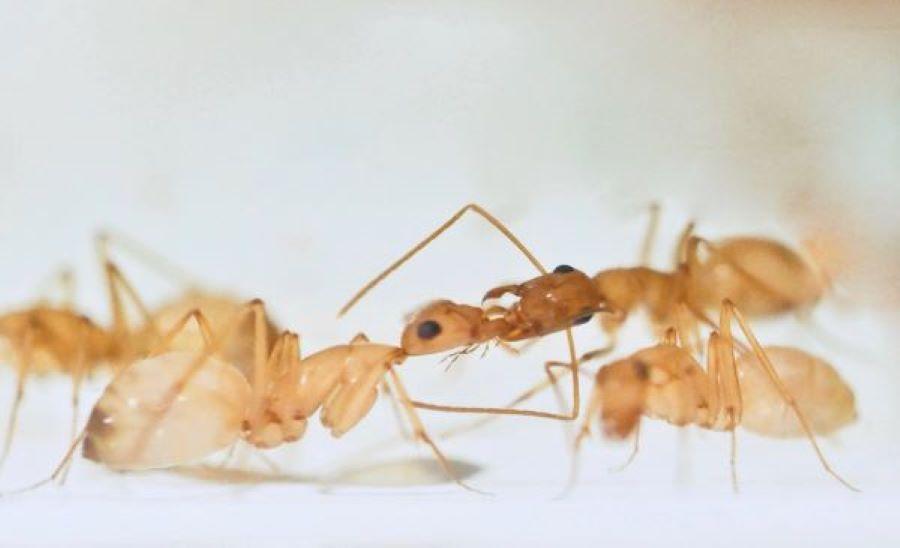
Image:Two ants passing social fluids by trophallaxis.
Behavioural, morphological, and molecular evolution of a social transfer
Supervisor: Prof Adria LeBoeuf
Project Summary
Behaviours evolved for social transfers of material are often complex and can involve highly adapted physiological features that produce, secrete, and transmit the socially transmitted materials. Full organs have evolved to convey socially transferred materials (e.g., penises, love darts, placentas, tubercles, nipples). Behind these transfer organs, there are typically glands adapted for production. At the molecular level, there are often highly lineage-specific and transfer-specific secretion pathways (Brückner and Parker, 2020).
What came first – the behaviour, the glands or the molecular machinery? Because social regurgitation behaviour (trophallaxis) is used to varying degrees over the ant phylogeny (Meurville and LeBoeuf, 2021), we can exploit the incredible diversity of ants (>14000 species) to understand how it evolved.
Broad approach. To understand how new secretion systems evolve in connection with social transfers, we will bring together morphology, genetic evolution and behaviour to date the points in different ant lineages when trophallaxis behaviour was gained, when the first gene co-options likely occurred, when major glandular shifts occurred and how these factors impacted evolutionary rates in the relevant genes. In practice, we will pinpoint the time when major crop milk proteins entered crop milk in each clade of ants, we will infer ancestral protein functions, perform selection analyses, and test our computational predictions with wet-lab experiments (in situ hybridization, crop milk proteomics, pharmacological manipulations).
References
Brückner A, Parker J. 2020. Molecular evolution of gland cell types and chemical interactions in animals. J Exp Biol 223. doi:10.1242/JEB.211938
Meurville M-P, LeBoeuf AC. 2021. Trophallaxis: the functions and evolution of social fluid exchange in ant colonies (Hymenoptera: Formicidae). Myrmecological News 31:1–30. doi:10.25849/myrmecol.news_031:001
Meurville M-P, Silvestro D, LeBoeuf AC. 2022. Ecological change and conflict reduction led to the evolution of a transformative social behavior in ants. bioRxiv. doi:10.1101/2022.09.25.509371
